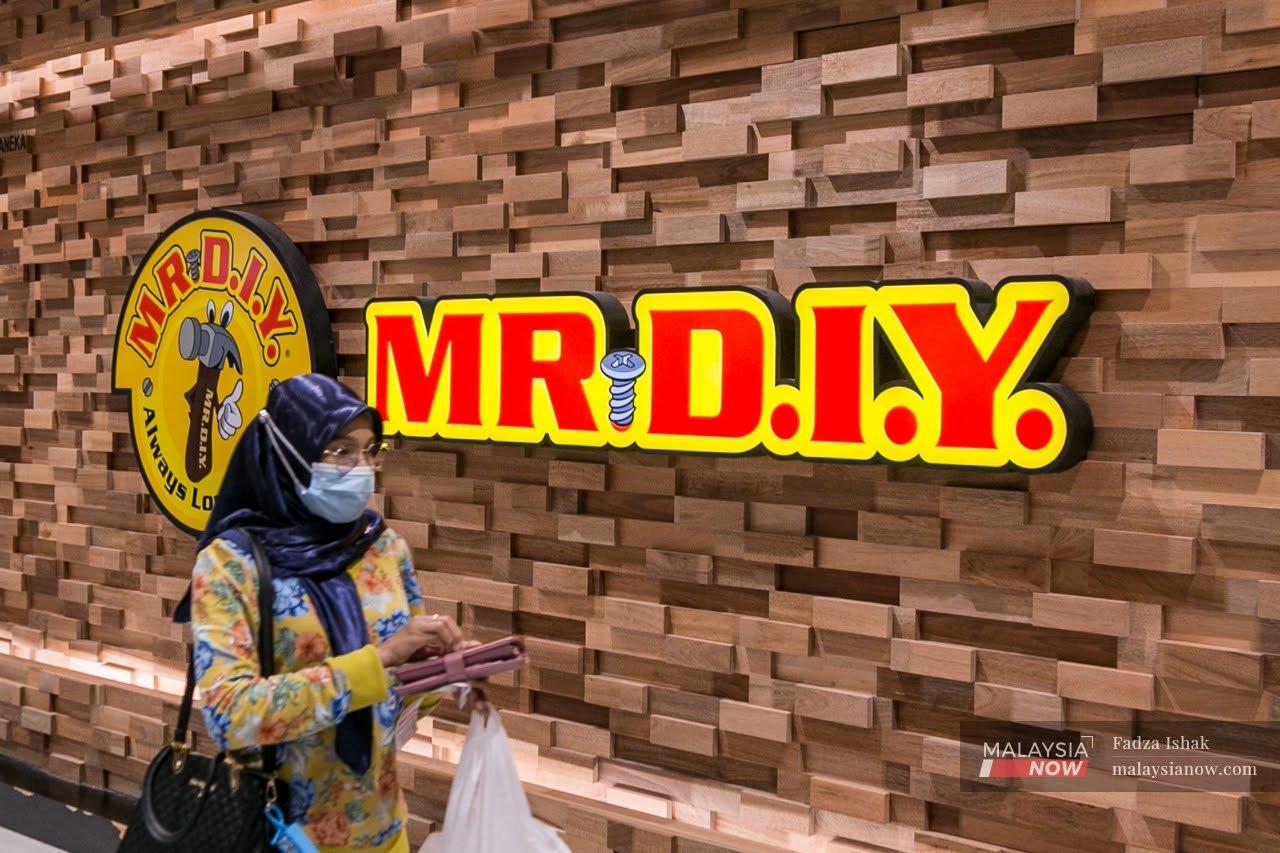With home improvement store IPO comes questions on overconsumption, waste
While many retailers are struggling to sustain their businesses, one is doing so well that it is going for a billion-dollar boost in funding.
Just In
The initial public offering (IPO) exercise by MR DIY Group (M) Bhd last week has sparked interest among analysts and investors as the home improvement retail chain sets the record for the largest IPO on Bursa Malaysia in the last three years, generating RM1.5 billion in funds for the company and giving it a market value of RM10 billion.
Companies that wish to be listed are required to meet stringent criteria detailed by Bursa Malaysia.
One such criteria is sustained growth – a “profit track record”, to use the technical term – for a period of three to five consecutive financial years.
At the end of last year, MR.DIY posted a full-year 2019 (FY19) net profit of over RM300 million. Revenue for the group for FY19 was RM2.2 billion.
Coming as the retail sector takes a beating from the sudden and drastic drop in consumer spending due to the government-imposed movement control order (MCO) during the Covid-19 pandemic, the MR.DIY listing on the main market board stands out.
The pandemic found many retailers unprepared and ill-equipped to pivot to alternative strategies and sources of revenue (read e-commerce), but here was a retailer going for listing barely four months after the start of the recovery phase of the MCO.
Questions on consumer behaviour
Against a backdrop of other big-box retailers scaling back or shuttering, and smaller retailers suffering severe revenue drought, a company listing at a time of economic uncertainty raises several questions.
Does the sustained growth of this type of retailer, which sells everything under one roof for low prices, reflect an anomalous spike in consumerism or is this what consumers really want?
Is it a new business strategy, appealing to the mass market to bring in the big bucks instead of banking on the top 20% of the moneyed classes to buy luxury goods?
A company listing at a time of economic uncertainty raises several questions.
Is the mix of a dollar-store set-up with bargain prices just too good for consumers to resist or are they falling prey to manipulative in-store marketing tactics?
There is a reason why low-price chain stores such as Walmart top the Fortune500 list of most valuable companies: consumers love bargain variety stores.
But is the overconsumption in variety stores tapping a human tendency for needless consumption and contributing to larger problems such as environmental damage and resource depletion?
“Overconsumption is a legitimate concern,” Lee Hwok-Aun, author of several books on the Malaysian economy, tells MalaysiaNow.
“Easy access to cheap products – many of which are durable – may exacerbate solid waste disposal problems,” says Lee, now attached with the Singapore-based ISEAS-Yusof Ishak Institute.
But some experts in the retail sector may beg to differ.
“I don’t think it’s wasteful overconsumption,” said Andrew Kang, a management consultant specialising in FMCG clients.
“I think the strategy for goods sold at these dollar shops is meant to be focused on disposables.”
But Kang questions whether this is fair consumerism, noting that the target market for stores such as MR.DIY is mainly the M40 and B40 – consumers who are looking for affordable goods, and who are price-conscious above all.
“Yet, the products they can afford are also the same products that are of questionable quality.
“Is this fair, to encourage those who are counting pennies to spend more?”
Lee points out that MR.DIY’s growth was over a decade in the making, and that planning for this IPO must have started before the pandemic. Thus, he says, “being on the verge of an IPO has deeper roots than current consumption behaviour and the retail sector”.
But he adds: “It is possible that Covid-19 has boosted its market presence.”

For Kang, one question is whether there is really a clear strategy to recoup and reward shareholders after the IPO or just a strategy on paper to justify the billion-ringgit ask, and whether brick and mortar consumerism is the way forward.
“Personally, I doubt that opening more brick and mortar stores is the way forward. Malaysian consumers are going digital.”
But Lee differs, saying, “As people increasingly shop at hypermarkets, they will also increasingly go to places like MR.DIY rather than local hardware stores.
“With growing household income, Malaysians may have also acquired more taste for home improvement and the products sold at MR.DIY.”
Whither the smaller shops?
Does the success of retail chains like MR.DIY spell a bleaker outlook for smaller stores?
“I don’t think it is necessarily game over for the local stores, which have the convenience of proximity to places of residence,” says Lee. “But I can foresee that they will more likely thrive in densely populated areas.”
Kang meanwhile maintains that global trends point towards sustainable consumerism and that the “green” economy is growing.
“Awareness of the dangers of waste is increasing; instead of buying material goods, trends are shifting towards experiences.
“Everything points away from traditional brick and mortar shops,” he tells MalaysiaNow.
Subscribe to our newsletter
To be updated with all the latest news and analyses daily.
